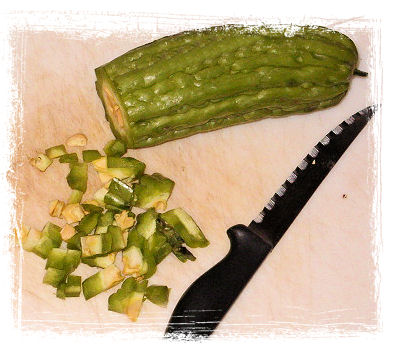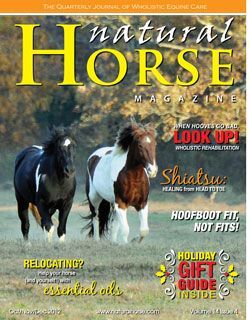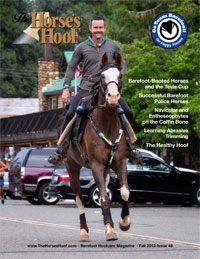BITTER MELON
Bitter melon (Momordica charantia), also known as balsam pear or Chinese cucumber, is a plant containing substances proven to lower blood sugar. The mechanism of action is still under debate, but the active components of Bitter Melon appear to be similar in structure to insulin and could work by affecting insulin signaling to cells. In addition to its affects on metabolism, Bitter Melon also appears to have anticancer and antiviral properties.
http://www.smartpakequine.com
—————————————————————-
Talking with a client/friend last night it was mentioned that her vet stated that there are an awful lot of bruised soled horses and sore horses around this season. Can’t figure out what is causing it. That’s pretty worrisome when there is a fair number of horses with the same symptoms and veterinarians and other specialists cannot determine what the cause it. That means they have no drugs to prescribe except those that might eliminate the symptoms that are present.
The pony of the conversation last night is metabolic and presenting with the inability to walk on the frozen, rutted ground. In snow she was doing better but now that the snow has melted she’s retreated to her stall and is unwilling to leave her position; lying down much of the time. The veterinarian was called out to examine and he found digital pulses in both her rear hooves but no other clinical symptoms. He said she was *trying* to founder but hadn’t. Interesting to note that while she was on her homeopathics she was doing well — had lost some weight, was eating her veggies and forage extender along with hay regularly and comfortably. (No longer on her homeopathic remedy due to some new Government regulation on the ACTH.)
She stopped eating her forage extender (as did another one of the herd members. Herd = 3) all of a sudden and she, plus the rest of the herd, have slowed down on their hay consumption. It is noted in “Veterinary Herbal Medicine” by Susan G. Wynn DVM and Barbara Fougere BVSc BVMS(Hons) that animals will stop intake of any food when ill except for a medicinal herb or combination of such and water.
Not the time of year to do that safely or comfortably being its very cold outside and they need their forages to help keep warm and maintain their calorie numbers.
Now I, also, have a small 14 yo UK pony who has gorgeous hooves, no rings, no heat, no digital pulse, no bruising evident, no ‘founder stance’ … just nice little pony hooves. As presented evidently he is, most likely, metabolic. He’s lost some weight in the last couple of months and has been on and off again slightly lame to dead lame. He had been developing a cresty neck last spring when at which time I noticed he was pushing off one of the horses from her forage extender and eating her share as well as his own! Little piggy. Since then he’s been prohibited from eating forage extender; in fact, no one in the herd gets it anymore. All they have is salads 3 times a week and all the hay (2nd cut Timothy/Grass/Alfalfa/Clover) they want. No one receives ANY processed feed anymore and I don’t think they ever will again since the studies I’ve done show it to be more detrimental than beneficial. (See other entries in this blog.)
I also believe that processed feeds are the MAIN reason for the increase in laminitis, Cushings, and Insulin Resistance that we’ve been seeing in younger and younger horses, more and more.
Now, Turmeric helps ease the pain in his hooves as has the Silicea and Hypericum he’s received for the last 3 days. However, using the silicea and the hypericum homeopathics as acute symptom remedies will not necessarily address the root imbalance that causing the symptoms. So, an evaluation as to his “correct” constitutional remedy will begin shortly.
Well, this week, while ‘up north’ on trim appointments, I happened to stop at an Oriental Supermarket where I found fresh “Bitter Melon”. I was soooooooo excited! So tonight, I’ve chopped up some of the fruit and will feed to the pony – about an oz. of the fresh fruit. He’ll get this every night for the next 5 night, probably, as that’s about how long the melon will last. I will record any changes that I note in him – physically, mentally, emotionally or behaviorally.
Perhaps a jump start on his ability to process sugars and reduce his insulin levels will get him back on the right track.
If any one here reading this has used Bitter Melon, please leave a comment and let me know of your experience!
Thanks! 🙂











